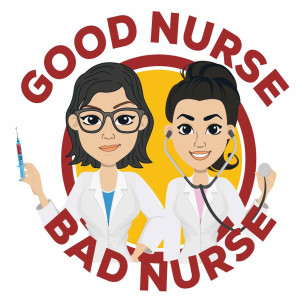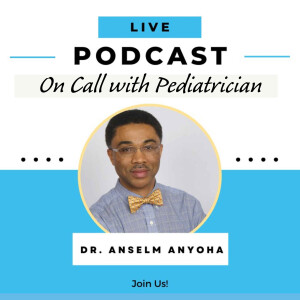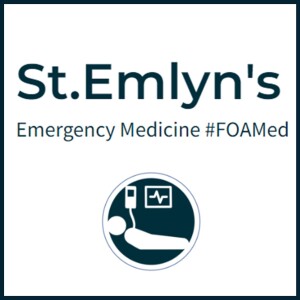Welcome to the St Emlyn's blog, where we delve into the latest topics and developments in emergency medicine. Today, we explore a crucial yet often overlooked aspect of our field: acute psychiatric emergencies. This post summarizes a recent conversation between Simon Carley and Kevin McRey Jones, highlighting the significance of addressing psychiatric emergencies within emergency departments. We will shed light on the Apex course, its methodologies, and the vital need for integrating psychiatric care into emergency medicine.
Addressing the Gap in Psychiatric Emergency CareKevin McRey Jones, a key figure in emergency medicine, recently joined the St Emlyn's podcast to discuss the Apex course, an initiative designed to fill a significant gap in emergency medicine training. Despite considerable advancements in managing various medical emergencies, psychiatric emergencies often remain underemphasized.
The Apex course addresses this gap by focusing specifically on acute psychiatric emergencies. Kevin explained that while many advancements have been made in managing cardiac, trauma, and obstetric emergencies, psychiatry has not received the same systematic approach. This has led to a fragmented care model where physical and psychological components are often treated separately.
The Origins and Purpose of the Apex CourseThe Apex course, originating in 1992 with the Advanced Life Support Group, was created to systematize the training for managing acute psychiatric emergencies. Kevin, who has a long history of organizing and delivering courses in emergency medicine, emphasized the need for a unified approach to patient care. The course aims to bridge the gap between emergency physicians and psychiatrists, promoting a co-ownership model of patient management.
Why Psychiatric Emergencies are Often OverlookedOne major reason psychiatric emergencies have not received the same attention as other medical emergencies is the perception that these are problems best handled by psychiatrists or liaison nurses. This mindset leads to a tendency to pass psychiatric cases off to specialists rather than integrating psychiatric care into the emergency department's responsibilities.
Kevin highlighted a common issue where patients with both physical and psychological illnesses are often divided into two separate cases: the physical bit managed by emergency physicians and the psychological bit by psychiatrists. This division can lead to suboptimal care and poor outcomes, as the interconnected nature of these issues is overlooked.
The Consequences of Ignoring Psychiatric ComponentsIgnoring the psychiatric component of patient care can have severe consequences. Kevin pointed out that patients with psychiatric diseases often have poor outcomes regarding their physical health. This is largely because their physical ailments can be neglected due to the focus on their psychological issues.
Simon added that the outcomes for patients with psychiatric diseases, in terms of their physical health, are often terrible. This emphasizes the need for a more integrated approach to patient care, where both physical and psychological aspects are managed simultaneously.
The Need for Integrated CareKevin stressed the importance of co-owning the problem rather than treating psychiatric emergencies as the sole responsibility of psychiatrists. By doing so, emergency departments can provide more comprehensive care, addressing both physical and psychological needs. This integrated approach is essential for improving patient outcomes and ensuring that all aspects of a patient's health are considered.
Common Practices and Their PitfallsSimon discussed a common practice in emergency departments where patients presenting with apparent psychiatric problems are often assessed solely for physical issues before being referred to psychiatric specialists. This "clear them medically" approach can lead to delays in psychiatric care and inadequate management of the patient's overall condition.
Kevin acknowledged this issue and emphasized the need for emergency physicians to be involved in the psychiatric assessment and management of these patients. This approach ensures that all aspects of the patient's health are addressed, leading to better outcomes.
Rethinking Emergency Care for Psychiatric PatientsSimon reflected on the current practices and highlighted the need for change. The idea of dividing patient care into physical and psychological components, with little overlap, is increasingly seen as problematic. Kevin agreed, noting that sometimes organic problems can be overlooked when patients are quickly referred to psychiatric care without a thorough assessment.
The Apex Approach: AIOU MethodologyThe Apex course introduces the AIOU methodology, designed to integrate psychiatric and medical care seamlessly. This structured approach includes:
- A: Assessment of aggression and agitation.
- E: Environment in which the patient is assessed.
- I: Intent of the patient, including suicidal ideation or harm to others.
- O: Objects the patient may use to carry out their intent.
- U: Unified assessment, combining both physical and psychological evaluations.
Kevin explained that the AIOU methodology is a co-created approach by psychiatrists and emergency physicians. This collaboration ensures that both physical and psychological aspects of patient care are addressed. The methodology aligns with the primary assessment, resuscitation, and definitive care phases familiar to emergency physicians.
Addressing Challenges in Psychiatric Emergency CareRapid tranquilization is a common concern in managing psychiatric emergencies. Kevin emphasized that the goal is to use the minimum level of intervention required, whether that involves oral medication or, if necessary, safe rapid tranquilization. The course teaches a balanced approach to ensure patient safety and effective management.
The Role of Risk AssessmentPsychiatry is a risk-driven specialty, focusing on assessing risks of violence, flight, and harm to self and others. Kevin highlighted the importance of minimizing these risks through a structured, systematic approach. This methodology allows for a comprehensive evaluation and management plan that addresses both immediate and long-term risks.
Structured Approach to Both Psychiatric and Physical AssessmentThe Apex course emphasizes a structured approach to both psychiatric and physical assessments. This dual-focus ensures that all aspects of a patient's health are considered, leading to more comprehensive and effective care.
Collaboration Between Psychiatrists and Emergency PhysiciansThe course promotes collaboration between psychiatrists and emergency physicians, encouraging them to learn from each other and develop joint solutions to patient care challenges. This partnership is essential for providing holistic care and improving patient outcomes.
Co-Assessment and Risk ManagementThe course highlights the importance of co-assessment and risk management. By working together, psychiatrists and emergency physicians can provide a more unified approach to patient care, addressing both physical and psychological needs simultaneously.
Substance Abuse and Psychiatric SymptomsSubstance abuse often complicates psychiatric emergencies. The Apex course takes a symptom-based approach, focusing on the specific challenges presented by patients with delirium, confusion, aggression, and self-harm. This approach allows for a more tailored and effective management plan.
Prevalence and Importance of Addressing Psychiatric EmergenciesPsychiatric emergencies are more common than many realize. Kevin noted that about 5% of patients in emergency departments present with direct psychological or psychiatric symptoms. Including substance abuse and alcohol-related cases, this number can rise significantly. Addressing these emergencies systematically is crucial for improving patient care and outcomes.
ConclusionThe Apex course represents a significant advancement in the training and management of acute psychiatric emergencies. By promoting a unified approach to patient care, it addresses a critical gap in emergency medicine. Collaboration between psychiatrists and emergency physicians is essential for providing comprehensive care and improving patient outcomes. For more information on the Apex course and upcoming training sessions, visit the Advanced Life Support Group's website.
Final ThoughtsReflecting on the discussion, Simon emphasized the importance of integrating psychiatric care into emergency medicine. The dichotomy approach, where physical and psychological issues are treated separately, is increasingly seen as inadequate. The Apex course offers a pathway to more comprehensive, patient-focused care, ensuring that all aspects of a patient's health are addressed.
How to Learn MoreFor those interested in learning more about the Apex course and upcoming training sessions, visit the Advanced Life Support Group's website at www.alsg.org. The course is offered in various locations, providing opportunities for emergency physicians and psychiatrists to enhance their skills and knowledge in managing acute psychiatric emergencies.
By embracing this integrated approach, we can ensure that patients receive the comprehensive care they need, improving outcomes and advancing the field of emergency medicine.
More Episodes
Ep 253 - Highlights from the London Trauma Conference 2024
 2024-12-11
2024-12-11
 659
659
Ep 252 - ECMO in Trauma with Chris Bishop at Tactical Trauma 24
 2024-12-04
2024-12-04
 1.1k
1.1k
Ep 251 - Bad Behaviours in Teams with Liz Crowe at Tactical Trauma 24
 2024-11-27
2024-11-27
 1.3k
1.3k
Ep 250 - Monthly Round Up September 2024 - Patient Experience in the ED, Dirty Adrenaline, and More!
 2024-11-20
2024-11-20
 1.3k
1.3k
Ep 249 - Care in the Hot Zone with Claire Park at Tactical Trauma 2024
 2024-11-14
2024-11-14
 1.4k
1.4k
Ep 248 - Prehospital eCPR with Alice Hutin at Tactical Trauma 2024
 2024-11-06
2024-11-06
 1.4k
1.4k
Ep 247 - August 2024 Round-Up - Goldilocks Moments, Nasal Analgesia, and Public Health in the ED
 2024-10-30
2024-10-30
 1.3k
1.3k
Ep 246 - Simulation for Elite Team Performance with Andrew Petrosoniak at Tactical Trauma 2024
 2024-10-23
2024-10-23
 1.5k
1.5k
Ep 245 - Leading through failure with Kevin Cyr at Tactical Trauma 2024
 2024-10-18
2024-10-18
 1.9k
1.9k
Ep 244 - July 2024 Monthly Update - Chest Pain, REBOA, Lidocaine patches and lots of paediatric emergency medicine
 2024-10-06
2024-10-06
 1.5k
1.5k
Ep 243 - The Subarachnoid Haemorrhage in Emergency Department (SHED) Study
 2024-09-26
2024-09-26
 1.8k
1.8k
Ep 242 - Prehospital Neuroprotection with Ed Langford at PREMIER 2024
 2024-08-21
2024-08-21
 1.6k
1.6k
Ep 241 - Paediatric Palliative Care with Tim Warlow at PREMIER 2024
 2024-08-14
2024-08-14
 1.2k
1.2k
Ep 240 - June 2024 Monthly Round Up - Nebulised Ketamine, Risky Intubations, Better Presentations, DSED, Preoxygenation and more
 2024-08-07
2024-08-07
 1.8k
1.8k
Ep 239 - Button Battery Ingestion with Francesca Steadman at PREMIER 2024
 2024-07-31
2024-07-31
 1.4k
1.4k
Ep 238 - Positive and Negative Predictive Values: Critical Appraisal Nugget
 2024-07-24
2024-07-24
 1.3k
1.3k
Ep 237 - Hybrid Closed Loop Insulin Pumps with Nicola Trevelyan at PREMIER 2024
 2024-07-17
2024-07-17
 1.3k
1.3k
Ep 236 - Occlusive Myocardial Infarction, ECGs and AI with Steve Smith
 2024-07-10
2024-07-10
 1.9k
1.9k
Ep 235 - Eating Disorders in the Emergency Department with Anna Kyle at PREMIER 2024
 2024-07-02
2024-07-02
 1.4k
1.4k
Ep 234 - May 2024 Monthly Round Up - RCEM conference highlights, being EPIC and more
 2024-06-27
2024-06-27
 1.4k
1.4k
Create your
podcast in
minutes
- Full-featured podcast site
- Unlimited storage and bandwidth
- Comprehensive podcast stats
- Distribute to Apple Podcasts, Spotify, and more
- Make money with your podcast
It is Free
You may also like

Good Nurse Bad Nurse


The Relaxback UK Show


On Call With Dr. Anselm Anyoha


The Dr. Hyman Show


The Peter Attia Drive

- Privacy Policy
- Cookie Policy
- Terms of Use
- Consent Preferences
- Copyright © 2015-2024 Podbean.com




 iOS
iOS Android
Android